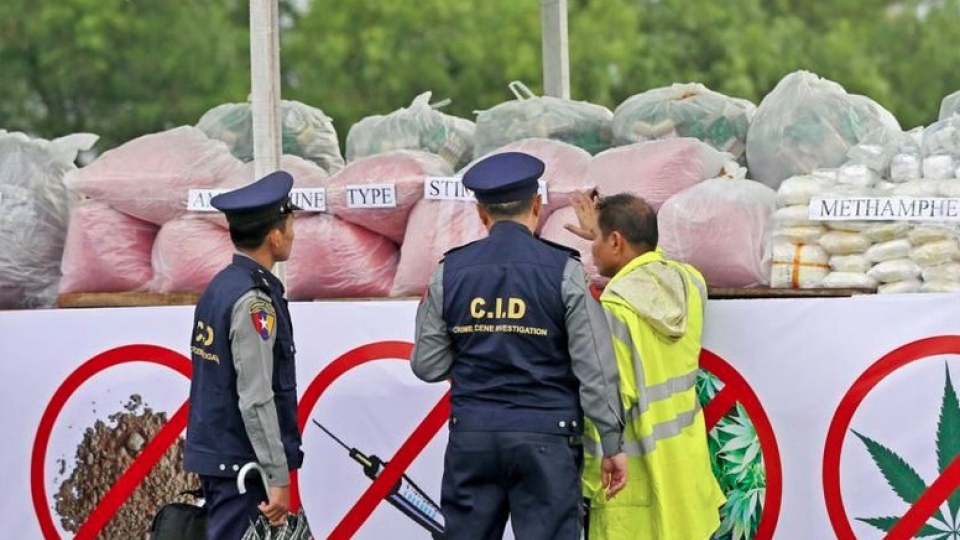Vietnam makes strides in fight against human trafficking: IOM
Vietnam has made tremendous progress in combating human trafficking in recent years, Chief of Mission of the International Organisation for Migration (IOM) in Vietnam Kendra Rinas has stated.

Talking to the Vietnam News Agency (VNA) on the occasion of World Day Against Trafficking in Persons 2025, Rinas underlined efforts made by Vietnamese authorities in the fight against human trafficking, noting that under the leadership of the Government and the Ministry of Public Security, in coordination with relevant agencies, the revised Law on Human Trafficking Prevention and Control officially took effect on July 1, 2025.
One of the key highlights of the amended law is its emphasis on a victim-centred approach in the policymaking process, she said, adding that the revised law ensures support for all groups of Vietnamese nationals, foreigners, stateless persons, and minors.
According to Rinas, the revised law is an important step, reinforced by the ongoing 5th National Plan of Action, which covers 2021 to 2025, and looks ahead to 2030. These efforts mark 25 years of coordinated action against trafficking, which is commendable.
She also applauded Vietnam for strengthened efforts in investigations, prosecutions, and convictions for trafficking crimes, saying that since 2019, IOM and its partners have provided assistance to more than 840 trafficking victims and vulnerable migrants, and over 1,380 Vietnamese law enforcement officers have received training.
Significant progress has also been made in assisting Vietnamese nationals rescued from scam compounds to safely return home, however, trafficking in persons (TIP) screening processes still require more consistency and coordination, Rinas said.
IOM is committed to addressing these gaps by furthering collaboration with the Ministry of Health, and the Border Guard High Command of Vietnam, especially in screening of potential victims of trafficking for forced criminality, she stressed.
The official said human trafficking is a complex issue, requiring a comprehensive approach from the government, adding that her agency is pleased to see multiple government agencies at central and local levels engaged in these issues.
According to Rinas, trafficking is becoming more sophisticated and organised. Networks that operate with precision, often leveraging digital platforms to recruit victims, including young people who are educated and tech-savvy.
IOM’s Regional Situation Report on Trafficking in Persons into Forced Criminality in Online Scamming Centres shows that the number of trafficking victims forced into criminal activities, who received IOM’s support in Southeast Asia, more than tripled, from 296 in 2022 to 1,093 so far in 2025.
Vietnam needs to pay attention to trafficking for forced criminality, such as cyber scam compounds, as well as emerging cases involving organ trafficking, infant trafficking, and even trafficking of unborn children, she said, noting that that’s why the revised human trafficking law in Vietnam now contains explicit provisions to protect unborn victims.
Frontline officers face a variety of challenges as traffickers are adapting rapidly, exploiting legal loopholes, and shifting their activities into the online sphere, making detection and prevention even more complex.
To overcome these challenges, it is vital to continue raising public awareness about the complex risks of trafficking, strengthen law enforcement capacities to effectively investigate and prosecute traffickers, and ensure that all victims receive adequate protection and support.
IOM is proud to stand alongside the Vietnamese Government in driving these efforts forward and remains committed to supporting every aspect of this important work, she stated.
Rinas underlined the importance of enhance data management and ensure that all TIP data is integrated into a national database, saying that this is crucial for evidence-based policies and effective prosecution.
IOM aims to enhance Vietnam's database on trafficking in persons and international migration and improve the legal framework for migration governance to align with international standards, she said.
She stressed the necessity to expand training for law enforcement and the judiciary so they are fully up to date on the changes with the related legal frameworks, adding that every victim - regardless of their status - should have equal access to protection and support, as required by the 2025 law.
The official urged Vietnam to foster partnerships, noting that strong collaboration between the government, civil society, and technology companies is crucial. She said promoting responsible business conduct across supply chains will help prevent corporate complicity in trafficking.
Attention should also be paid to boosting public awareness and empowering at-risk groups, she went on, saying that under the support of the UK Home Office, IOM has collaborated with government agencies and local actors to reduce vulnerabilities to human trafficking through behaviour change communication, and strengthened access to information on safe migration, and TIP prevention.
Empowering the youth to lead initiatives that promote safe migration and prevent TIP is essential, and these efforts equip youth with the knowledge, resources, and skills to advocate for safer migration options, helping them make informed decisions and build resilience within their communities, she noted.
“IOM is also proud of our contribution to improving access for low-skilled workers to essential skills such as digital, soft, job application, and entrepreneurship skills. In partnership with relevant Vietnamese government agencies and Microsoft, IOM developed the e-learning platform congdanso.edu.vn, benefiting over 13,000 Vietnamese learners, especially internal migrant workers,” she said.
Rinas emphasised the importance of collaboration, innovation, partnership, and youth leadership in the fight against human trafficking, calling for joining hands in supporting victims, holding perpetrators accountable, and striving for a world where no one is bought, sold, or exploited.



